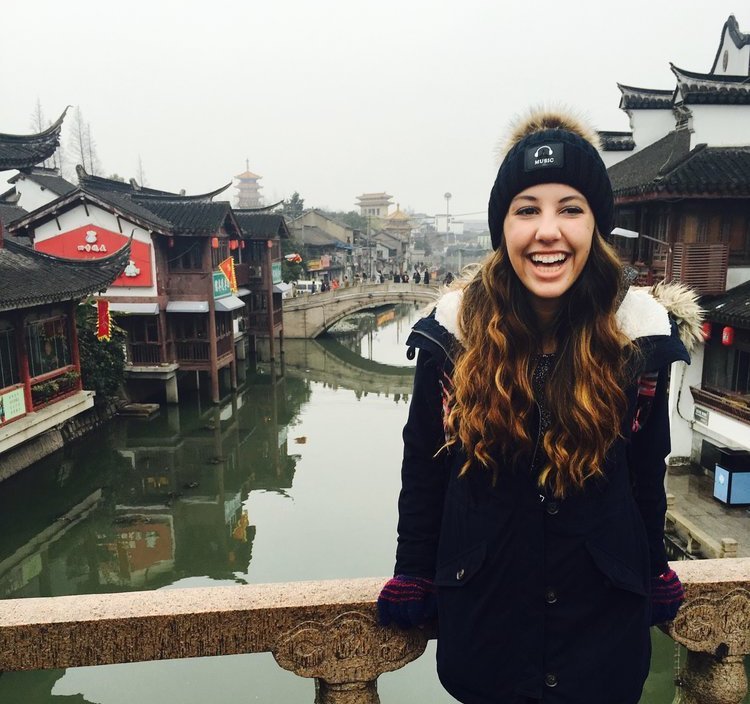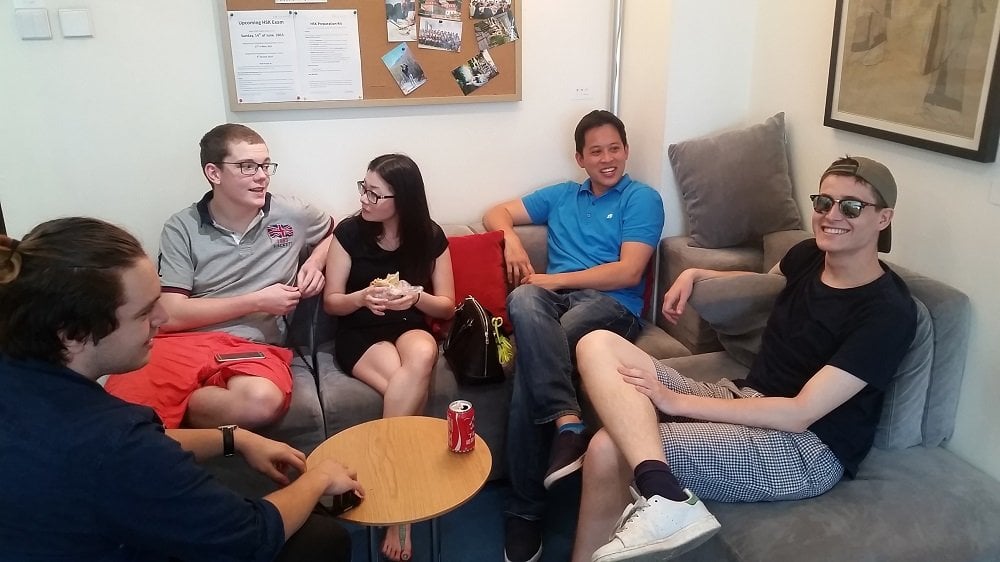5 Secrets About the Cost of Living in Beijing
Read on to find out more about the real cost of getting settled in Beijing, and how to make your money stretch a little better than I did.

When I first moved to Beijing, I had no money. Seriously, it was a problem.
I had just finished grad school in China, and I had about $2,000 USD to my name. I figured it would be more than enough to get myself settled in Beijing.
Boy, was I wrong.
Today I'm going to go over the real cost of getting settled in Beijing, and how to make your money stretch a little better than I did.
1. Rent is Expensive
Beijing recently was awarded the honor of the most unaffordable city in the world for housing. What does that mean? Housing is way too expensive relative to average income. Fortunately as a foreign teacher, you'll be making more than the average wage, but regardless, housing is way too expensive.
My company offered me a housing stipend of 6,000 RMB/month, which is about $950 USD. I figured this would be more than enough money to get me a nice studio apartment near work. Unfortunately for me, I assumed incorrectly.
My company showed me many studio apartments near work and literally everything was at least 7,000 RMB. While paying 1,000 RMB extra every month isn't a huge deal, it was a cost I wasn't anticipating.

How to Avoid This:
My company wanted me to find a place in three days. While it's easy to find an apartment in that amount of time, it's ridiculous to assume you'll find the perfect place that soon without exploring the city at all.
It wasn't until months later that I fell in love with the Gulou and Lama Temple areas of Beijing and decided to move there, breaking my lease. My advice is to stay in an Airbnb instead while you figure out where you really want to live and look for a good apartment.
If rent is too high, consider getting roommates. I live in an apartment with roommates now, and I'm able to pocket half of my housing stipend every month!
Granted, if your company or school provides you a free apartment, you won't have this issue. Lucky you!
2. Don't Forget the Deposit and Three Months Rent
When moving to Beijing, I had no idea I would need to pay my own rent deposit of $1,000 USD! In Beijing, usually your apartment's deposit is equal to one month's rent, and then you need to pay 3 months rent on top of that. Since I had a housing stipend, I only needed to pay 3,000 RMB for three months ($450 USD), but that was still a lot of money I wasn't anticipating. Altogether I owed 10,000 RMB, which is about $1,500!
Thankfully, my company paid for the agency fee, but some jobs may make you pay for this as well. My agency fee for my current apartment is 2,000 RMB, which is a little less than one month's rent for me.
How to Avoid This:
A one-month deposit and three months' rent upfront are standard in Beijing, so be sure to have that money set aside from the beginning. If you can't afford any of this up front, it might be smarter to find an Airbnb that will give you a discount if you book for a month, and stay there until your first paycheck. Then, you'll have a better idea of where you want to live as well!
If your company provides you an apartment, you won't have to pay any of this, which is great for you!
3. "Fully-Furnished" Doesn't Mean Fully Furnished

Most apartments in Beijing come "fully furnished," which means you won't have to buy a bed, a couch, tables and chairs, etc. However, don't forget to factor in the cost of housing supplies and bedding!
When I taught English in the Chinese countryside three years ago, my company purchased all of these items for me. I now know I was a bit spoiled in that regard, and many fully-furnished apartments come with a hot plate and nothing else.
I wasn't prepared to buy my own bedding, cups, plates, pots, and pans for the first month. While I decided to skimp on a lot of cooking supplies, I did need a pillow, sheets, a water boiler, and a cup! While these items are cheap, they all add up if you haven't budgeted for them.
How to Avoid This:
If you're provided an apartment as part of your contract, be sure to ask what your apartment will come with so you know how to budget for housing supplies. It really varies whether or not things like pillows, hot plates, and water boilers are included.
If you're moving into a place with roommates, chances are they'll already have almost every major appliance you need. In that case, you'll probably only need to buy your own bedding, hangers, towels, and other personal items.
4. Food is Cheap... Sometimes
Coming from Ningbo, I was shocked by how expensive Beijing had become over the last few years. Little dumpling places where I could get lunch for $1 were replaced by bubble tea stands where a milk tea itself costs $2! I was absolutely stunned.
While my current street has places where I can get dinner for $3-5, the area where I work is much more expensive. I need to budget $5-7 per meal in the building I work at, which was ridiculous to me coming from Ningbo, where I would get food for $2-3.
How can you figure out which areas cost what amount? Well, in the Zhongguancun business and education area where I work, I'm surrounded by malls and office buildings. This area is obviously much more expensive than the residential hutongs near my apartment.

How to Avoid This:
Ask your employer what you should budget per meal before you arrive. You can also scope out the cheapest places once you arrive, and order budget meals on apps like Eleme. I won't lie, I had to survive on a lot of fried rice and cheap vegetable noodles for the first month.
5. Most Companies Pay Mid-Month
I was definitely NOT expecting to work for free for 1.5 months when I first arrived in Beijing. Most companies in China pay on the 10th or 15th, meaning you need to work for over a month before you get your first paycheck.
Let's just say that was not a pleasant surprise.
Thankfully my company offers loans to new employees with no interest, which I had to take them up on considering I didn't have enough money to feed myself fried rice after paying my deposit.
How to Avoid This:
Be sure to ask your company or school when payday is before you arrive so you'll know how much time you need to work without being paid. Some companies do offer a relocation allowance, or will pay your first salary a bit early to help you move in. Others, like my company, offer loans to new teachers.
I Have a Job -- Now What?

I know this article probably scared you a little bit. But don't let the hidden costs of living in Beijing frighten you away from a great adventure!After your first payday, things will get so much easier. Now I'm making more than enough to support myself and pay off my $20,000 in student loans in less than two years!
Average Monthly Budget in Beijing
The biggest advice I can give you is to find a job with a good salary so you'll be able to live comfortably after your first month. In Beijing, you'll want to look for a job with free housing or a stipend of at least 3,000 RMB for a decent shared room. 5,000 RMB will get you a basic studio outside the city, whereas 7,000 RMB will be enough for a decent one-bedroom place.
Once your housing is covered, you'll want at least 10,000-12,000 RMB to live comfortably, travel and save money. If your school or company offers you 15,000 RMB without a housing stipend or something similar, just subtract your rent and make sure it's still at least 10,000 RMB.
With that amount of money you'll have a great life in Beijing, without ever having to worry the way I did my first month. Just be sure to prepare and save up before you arrive so you don't subsist off fried rice and company loans like I did!
